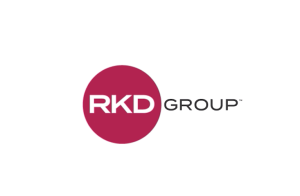Lobbying has always been a tricky business for nonprofit leaders. The yin and yang of what can be done and what can’t be done is often confusing.
As a result, a significantly lesser percentage of nonprofit managers report advocating or lobbying compared to 20 years ago. Just 31% report engaging in advocacy or lobbying during the past five years and only 25% report ever lobbying, which is around one-third of the percentage of those who reported ever having lobbied in 2000 (74%).
That’s among the findings in a new report from Independent Sector in Washington, D.C. titled “The Retreat Of Influence: Exploring The Decline of Nonprofit Advocacy And Public Engagement.” It replicates the work for the study “Strengthening Nonprofit Advocacy Project (SNAP),” led by Jeffrey Berry and Gary Bass, and published in 2000.
The report backs up a study released earlier this year by the Lilly Family School of Philanthropy at Indiana University that just 5.4% of Americans think they had engagement with a nonprofit during the previous 12 months, despite at least 10% of working Americans doing so in a tax-exempt setting. There have also been studies of a decline in middle-level donors, which can be tied to the lack of advocacy.
“Advocacy and public engagement are the heart of the work of nonprofits,” said Independent Sector President and CEO Akilah Watkins, Ph.D., via a statement. “Unfortunately, the report shows fewer nonprofits, today, leverage their influence to drive systemic change, educate community leaders, and give voice to their missions and those they serve compared to 20 years ago.”
“Advocating for change through the public policy process defines what it means to be a nonprofit,” Watkins said via the statement. “The changes we seek for those we serve rarely come without it. It is a core knowledge — and practice — that is essential for our missions and our survival.”
Mission plays the largest role in determining nonprofit advocacy and lobbying. Approximately 70% of leaders at policy-engaged nonprofits report their mission encourages policy engagement. For nonprofits where staff do not engage in policy, 56% report policy engagement is not applicable to their mission and 18% believe that their mission discourages advocacy, according to data in the new report.
A recent poll of registered voters cited in the report shows that the vast majority of respondents (87%) were in favor of local nonprofits informing political representatives about community issues, and more than 70% supported nonprofits engaging in civic participation activities such as voter registration drives. In other words, Americans are generally in favor of nonprofits engaging in policy discussions.
Data in the 2000 report showed slightly more than half of respondents (54%) at 501(c)(3) public charities knew they could support or oppose federal legislation, compared to fewer than one-third (32%) of respondents who are aware of that fact today.
Even though the percentage of leaders who realize they can engage in lobbying is declining, the raw numbers are growing, and the money spent on it since 2000 has expanded exponentially. Data shows that 2,534 organizations engaged in lobbying in 1993, with total reported expenses of $46.1 million. For 2023, the estimate is 10,233 organizations will spend $470.3 million.
Nonprofits that belong to collaborative groups advocate at higher rates than those that are not members. Of nonprofits that belong to local, state, or national coalitions, 57% advocate or lobby, compared to only 12% of nonprofits that do not belong to such coalitions.
Nonprofits engaged in advocacy and/or lobbying invest more time and resources in diversity, equity, and inclusion (DEI) activities compared to non-engaged nonprofits. While a majority of nonprofits have a DEI statement, only 36% of them engage in advocacy or lobbying to create more equitable systems, according to data in the report.
The Public Engagement Nonprofit Survey (PENS) project, commissioned by Independent Sector, was fielded in 2022 as a nationally representative survey of charitable nonprofits. The PENS results provide insights into how nonprofit organizations’ activities have changed during the past two decades and how activities vary by organization size, geography, communities served, and leadership demographics.
The research team invited randomly selected nonprofits to participate in this original survey to ensure a nationally representative sample of small, medium, and large 501(c)(3) organizations that provide all types of services through various funding sources in rural, suburban, and urban areas in every state.
The full report is available for download … https://independentsector.org/wp-content/uploads/2023/07/IndependentSector_AdvocacyResearch.pdf









